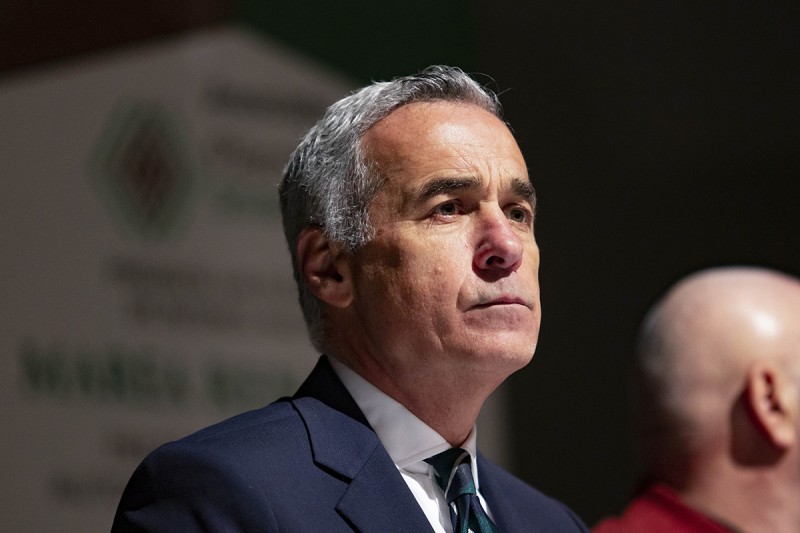Romania’s constitutional court ruled on Monday that there was no fraud in the first round of presidential elections, allowing far-right candidate Calin Georgescu to advance to the run-off vote.
As they prepare to cast a second round of ballots on December 8, many Romanians are still wondering how Georgescu has managed to emerge as the presidential frontrunner. Public opinion surveys early in the campaign didn’t even rank him at 1 percent, and he polled between 3 and 5 percent just before the first round of voting on November 24.
The secret to Georgescu’s success has been social media. But Context, an OCCRP member center in Romania, has discovered that Georgescu’s online campaign was boosted by bots and foreign accounts that promote Russian interests.
Georgescu’s campaign did not respond to requests for comment.
The outcome of the first round of voting put many people on edge, owing to Georgescu’s past public statements. Before the election, the 62-year-old self-styled anti-establishment figure reportedly called Ukraine “an invented state,” while expressing admiration for Russian President Vladimir Putin, as well as Romanian fascists.
During his campaign, social media accounts with hundreds of thousands of followers — many of which appear to be bots rather than real people — amplified more of Georgescu’s controversial messages.
One post, for example, portrayed Georgescu as a whistleblower who discovered that the United Nations has been covering up a network of pedophile oligarchs who manipulate world events.
That baseless claim was posted with the exact same wording on 10 different accounts on X, which have all been used previously to promote the interests of Russia.
Software developed to analyze social media showed that the post was viewed only three times; yet it received at least 103,000 reactions — such as “likes” and re-posts — indicating the work of an army of bots.
The software analysis was shared by Lucia Martinescu, a researcher at the U.K. think tank Foreign Policy Centre, who told Context: “The promotion of Călin Georgescu involved networks affiliated to Russia and beyond, specialized in destabilizing democracies.”
Romania’s Central Election Bureau also zeroed in on Georgescu’s social media campaign, requesting a week before the first round of elections that Tik Tok remove posts it said were “propaganda materials.” The bureau objected to the fact that the posts were clearly campaign messages, but they were not labelled as such, which Romanian law requires.
In relying so heavily on social media, Georgescu has boasted that was able to campaign with “zero budget.” That meant he had no need to tap into his personal savings, which reporters found have been bolstered by property deals.
Rise Romania, an OCCRP member center, reported along with Austria’s Profil that Georgescu and his wife have been buying and selling properties for years, both in Romania and in Austria, where he had worked as a UN rapporteur.



